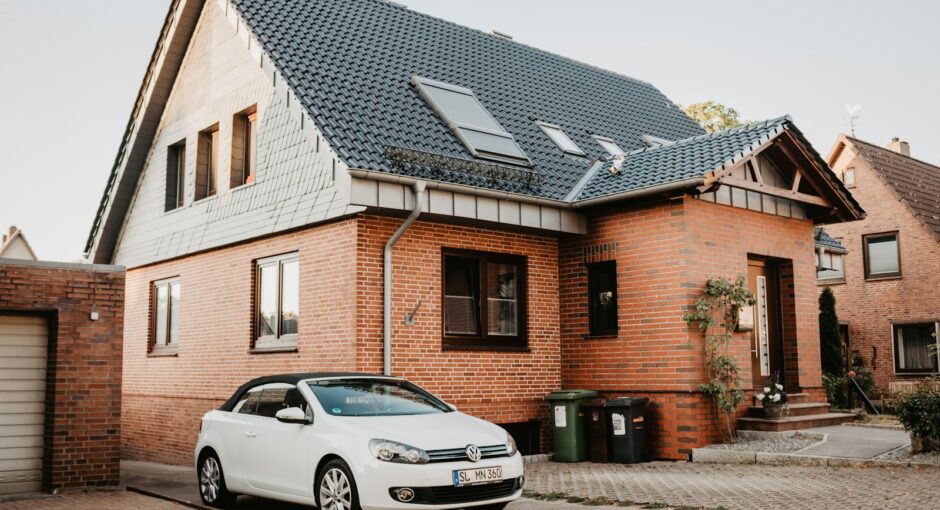As a new homeowner, there’s a lot to keep track of—mortgage payments, utility bills, maintenance schedules—but one essential task that often gets overlooked is a roof inspection. Your roof is one of the most important parts of your home, protecting you from the elements and keeping your home structurally sound.
But how often should you schedule a roof inspection? And why does timing matter?
In this guide, we’ll break down the recommended inspection frequency, what factors affect how often you should check your roof, and what to expect when you schedule one. Read on to learn how staying proactive can save you thousands of dollars in the long run!
Why Regular Roof Inspections Are Essential
Think of your roof like a car. Without regular maintenance, small issues can turn into big, expensive problems. A minor leak today can lead to water damage, mold growth, and even structural instability if left untreated. A Routine roof inspection can help catch these problems early, saving you from costly repairs or premature replacement.
Key benefits of regular roof inspections include:
Extending the lifespan of your roof – A well-maintained roof can last decades longer than a neglected one. A new roof can cost well over $15,000 for the average home, so making sure yours lasts as long as possible is worth it!
Preventing water damage – Leaks can lead to mold, rotting wood, and costly interior damage. Routine roof inspections help catch small problems before they turn into home disasters.
Lowering energy costs – A damaged roof can lead to insulation problems, making your home less energy-efficient. That means less money spent on heating and cooling costs!
Ensure insurance coverage – Many insurance companies require proof of regular roof inspections when processing claims. Having a record of routine inspections helps ensure you get proper coverage and claim payout in the event you have to file a claim. A professional roofing company will often provide these free of charge!
How Often Should You Schedule a Roof Inspection?
The general rule of thumb is to get a professional roof inspection at least once a year. However, the ideal frequency depends on several factors, including your roof’s age, the climate in your area, and recent weather events.
Recommended Roof Inspection Timeline:
-
Annually (at minimum) – A yearly professional inspection ensures that minor issues don’t go unnoticed.
-
After a major storm – High winds, hail, and heavy rain can cause hidden damage, even if your roof looks fine from the ground. It’s beneficial to get a professional inspection, especially for insurance documentation!
-
Before buying or selling a home – A roof inspection helps buyers and sellers avoid surprises during the home sale process.
-
Every 3-5 years for newer roofs – If your roof is relatively new, it may not require an inspection every year, but regular checkups are still recommended.
-
Twice a year for older roofs (10+ years) – Older roofs are more susceptible to wear and tear and should be inspected more frequently.
Factors That Affect How Often You Need a Roof Inspection
While the guidelines above are a good starting point, your home’s specific situation may require more frequent inspections. Here are some factors that influence how often you should have your roof checked:
1. Climate and Weather Conditions
-
Homes in areas prone to severe storms, hurricanes, or hail may need inspections multiple times a year.
-
Extreme heat and sun exposure can cause shingles to deteriorate faster.
-
Frequent snow and ice accumulation can lead to ice dams, which can damage shingles and gutters.
2. The Age of Your Roof
-
New roofs (under 5 years old): Inspections every 3-5 years unless a storm causes damage.
-
Mid-life roofs (5-10 years old): Inspections every 1-2 years.
-
Older roofs (10+ years old): Inspections twice a year, as older roofs are more susceptible to leaks and structural issues.
3. Roofing Material
Different roofing materials have different lifespans and maintenance needs:
-
Asphalt shingles (most common) – Need inspections every 1-2 years due to wear and tear.
-
Metal roofs – More durable, but still benefit from an inspection every 2-3 years.
-
Tile roofs – Resistant to weather, but should be checked every 2-3 years for cracks or loose tiles.
-
Flat roofs – Prone to water pooling and leaks; require annual inspections.
4. Visible Signs of Damage
Even if you’ve had an inspection recently, you should schedule one immediately if you notice:
-
Missing, cracked, or curling shingles
-
Water stains on ceilings or walls
-
Sagging areas on the roof
-
Granules from shingles in gutters
-
Unexplained increases in energy bills (could indicate insulation problems)
What Happens During a Roof Inspection?
If you’ve never scheduled a roof inspection before, you might be wondering what to expect. A professional roof inspection includes:
-
Exterior Check:
-
Examining shingles, flashing, and gutters for damage
-
Looking for signs of moisture, mold, or algae growth
-
Checking for structural issues, such as sagging
-
-
Interior Check:
-
Inspecting the attic for leaks, moisture, or poor ventilation
-
Checking insulation levels and airflow
-
Identifying signs of past or present water damage
-
-
Detailed Report & Recommendations:
-
The inspector will provide a report outlining any issues found and recommended repairs or maintenance.
-
How Proactive Roof Inspections Save You Money
Many homeowners avoid scheduling a roof inspection because they assume it’s unnecessary or costly. However, the cost of an inspection is far less than the cost of major repairs or a full roof replacement.
-
Preventative maintenance can save you thousands – Catching small leaks early prevents expensive structural damage.
-
Protects your home’s value – A well-maintained roof is a major selling point if you decide to move.
-
Ensures you stay covered by insurance – Many insurance companies require proof of maintenance before covering roof damage claims.
Final Thoughts: Stay Ahead of Roof Problems
As a new homeowner, it’s easy to overlook roof maintenance in favor of other responsibilities. However, regular roof inspections are one of the best ways to protect your home and avoid expensive repairs.
If you haven’t had your roof inspected in the past year, now is the perfect time to schedule one. A simple, proactive step today can save you from costly surprises in the future.




